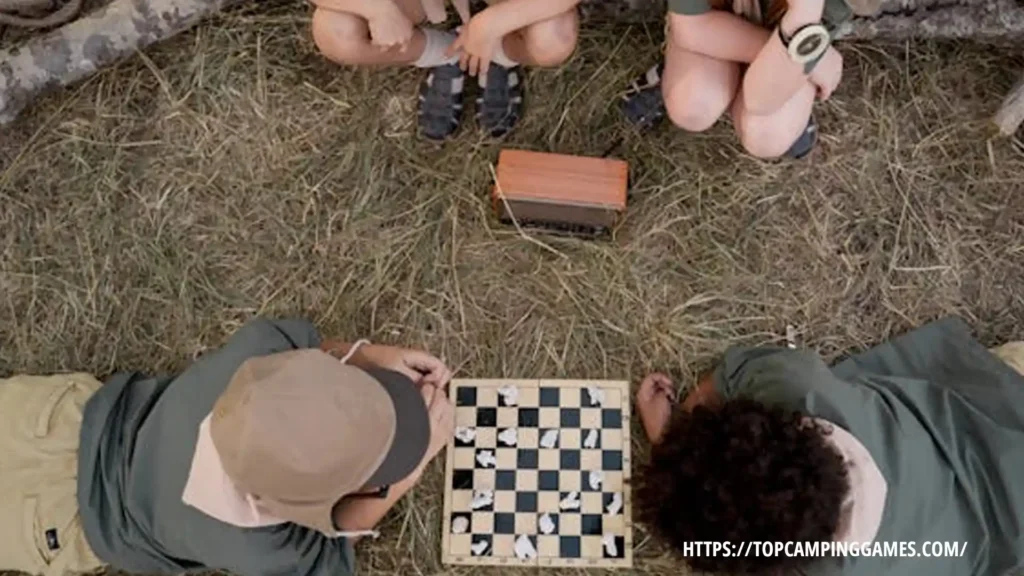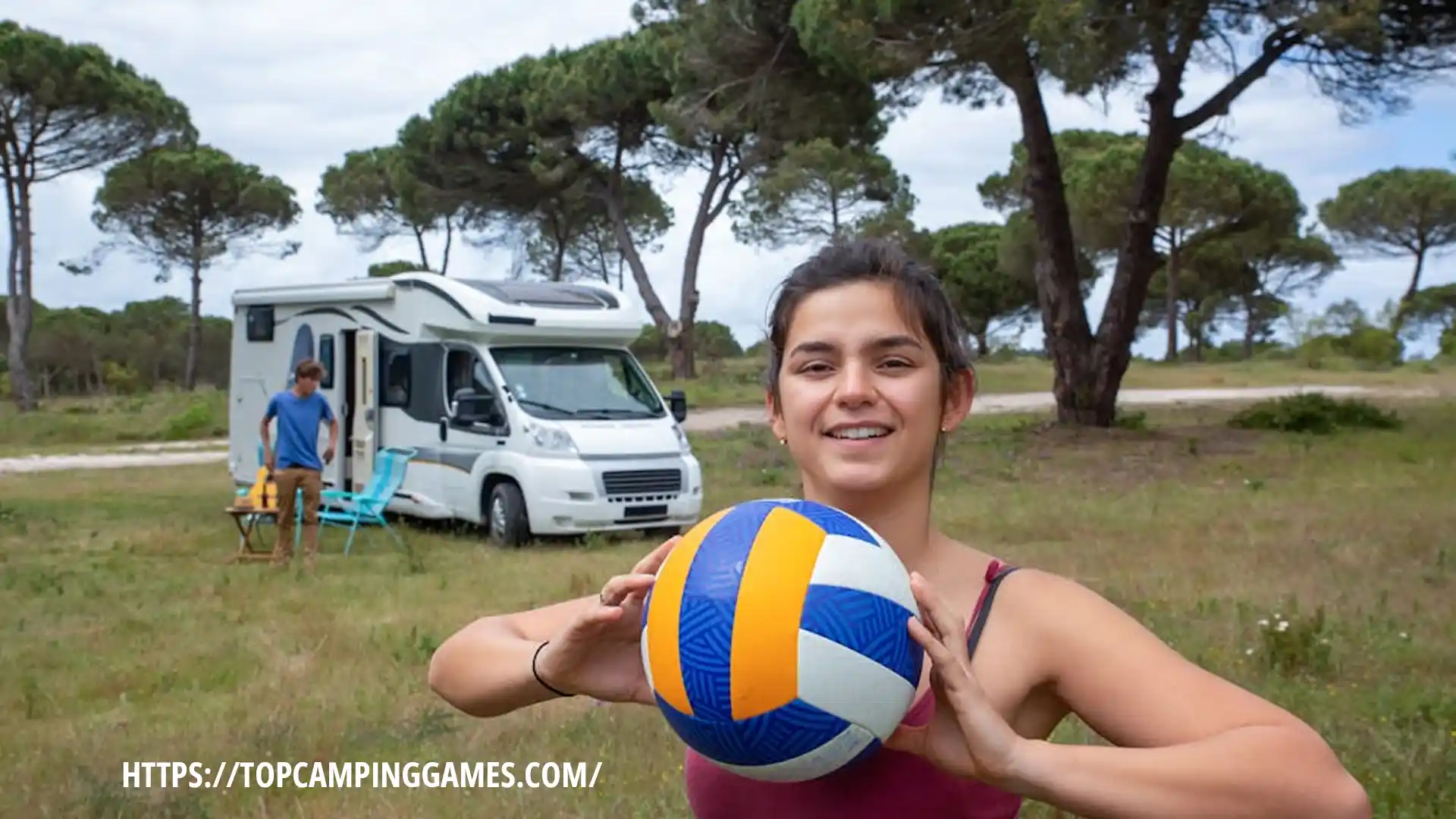The term “camping” has evolved significantly, especially in the world of gaming. If you’re a gamer or have recently joined the gaming community, you might have come across phrases like “stop camping” or “that player is a camper.” But what does camping mean in games, and why is it such a widely discussed concept? In this comprehensive guide, we’ll break down the meaning, strategies, and controversies surrounding camping in games, and help you understand why it’s such a hot topic among players.
Table of Contents: What Does Camping Mean in Games?
Introduction to Camping in Games
What Does Camping Mean in Games?
Origins of Camping in Video Games
Types of Camping Strategies
4.1. Defensive Camping
4.2. Ambush Camping
4.3. Spawn Camping
Why Players Camp in Games
Camping in Different Game Genres
6.1. First-Person Shooters (FPS)
6.2. Battle Royale Games
6.3. Role-Playing Games (RPGs)
6.4. Multiplayer Online Battle Arenas (MOBAs)
Is Camping a Legitimate Strategy?
The Controversy of Camping: Why It’s Divisive
Tips for Dealing with Campers
How to Use Camping Effectively Without Ruining Gameplay
Conclusion: Camping as a Strategy vs. Unfair Play
Meta Description
1. Introduction to Camping in Games
Gaming has countless strategies and tactics that players can adopt depending on their preferences, skill levels, and the game they’re playing. Camping in games refers to a specific tactic where a player remains in one location for an extended period, usually to gain a strategic advantage. This style of play can vary greatly in how it is applied and perceived, making it a highly debated strategy in many gaming communities.
Some players see it as a valid tactic, while others think of it as frustrating and unsportsmanlike. So, what does camping mean in games, and why is there so much controversy around it?
2. What Does Camping Mean in Games?
In the world of video games, camping is the act of staying in one spot for a prolonged period rather than moving around the game map. The goal is often to gain a tactical advantage over other players by taking up a defensive position, allowing the camper to ambush opponents as they pass by.
This tactic is most commonly associated with first-person shooter (FPS) games like Call of Duty, Counter-Strike, or Fortnite, where players set up in areas with a good vantage point to surprise and eliminate opponents. However, camping can occur in almost any genre, including battle royale games, role-playing games (RPGs), and multiplayer online battle arenas (MOBAs).
Camping can serve multiple purposes:
Gaining a strategic position: A camper might stay in a spot where they have a good view of enemy movements.
Conserving resources: Some campers wait in place to conserve health, ammo, or equipment.
Ambushing: The goal is to catch other players by surprise as they move into the camper’s line of sight.

3. Origins of Camping in Video Games
Camping as a gaming term has its roots in early online multiplayer games. Back when multiplayer shooters started gaining popularity in the late ’90s, players realized that sitting in one place could give them a significant edge. Instead of running around the map and exposing themselves to enemies, staying hidden and attacking from a fixed position allowed players to minimize risk while maximizing damage.
Over time, the term “camping” became more widely used, often negatively, by players frustrated with this tactic.
4. Types of Camping Strategies
Not all camping strategies are created equal. There are different ways players approach this tactic, each with its own set of advantages and drawbacks.
4.1. Defensive Camping
Defensive camping involves holding a position with a strategic advantage. Players often camp to protect objectives (like in Call of Duty’s Domination mode), defend high-traffic areas, or simply wait for enemies to come to them. This tactic can be seen as valid when defending a goal or territory.

4.2. Ambush Camping
In ambush camping, players position themselves in areas where enemies are likely to pass through. This style of camping is often criticized because it relies on surprise attacks from an unseen camper, which can frustrate players who feel the encounter is unfair.
4.3. Spawn Camping
Perhaps the most controversial type, spawn camping occurs when a player camps near an enemy’s spawn point, repeatedly killing them as soon as they appear in the game. This is generally viewed as unsportsmanlike, as it prevents the opposing team from fairly participating in the game.
5. Why Players Camp in Games
There are several reasons why players choose to camp:
Strategic advantage: Camping provides a solid defensive position, particularly in games that reward precision and timing over speed and aggression.
Lack of experience: Newer players might camp because they are unfamiliar with the game’s map or mechanics and feel safer staying in one place.
Conserving resources: In some games, camping is an effective way to conserve health, ammo, or other vital resources.
Risk aversion: Some players prefer a slower, more methodical approach to minimize the risk of dying in-game.
6. Camping in Different Game Genres
Although camping is most commonly associated with first-person shooters, it can appear in various gaming genres.
6.1. First-Person Shooters (FPS)
Camping is most prominent in FPS games. Players often find elevated or hidden spots to snipe opponents from a distance. In games like Call of Duty or Counter-Strike, players might camp in high-traffic zones to get the jump on enemies.

6.2. Battle Royale Games
In Battle Royale games like Fortnite or PUBG, camping can be a survival strategy. The large maps encourage players to take up positions in buildings or behind cover, waiting for enemies to approach. As the playable area shrinks, campers might be forced to move, adding an extra layer of strategy.
6.3. Role-Playing Games (RPGs)
Camping in RPGs is less common but can occur when players wait in ambush or stake out specific areas to gain an advantage over other players in multiplayer modes.
6.4. Multiplayer Online Battle Arenas (MOBAs)
While camping in MOBAs like League of Legends or Dota 2 is less frequent, certain players may “camp” in bushes or around objectives to catch enemies off-guard.
7. Is Camping a Legitimate Strategy?
This is where the debate around what does camping mean in games intensifies. Some gamers argue that camping is a legitimate defensive strategy, while others see it as a cheap tactic that takes away from the skill and fluidity of the game. The key issue often comes down to the context of the camping:
Is the camper defending an objective?
Is the camper in an area that forces players to run into them without recourse?
Does the game encourage camping as a viable tactic, or is it something that disrupts the balance?
8. The Controversy of Camping: Why It’s Divisive
Camping is a divisive topic in the gaming world because it can create frustrating experiences for other players. A skilled camper can dominate a game without actively participating in the traditional fast-paced, action-oriented playstyle. For some, this undermines the dynamic nature of competitive gaming.
Critics of camping claim it promotes unfair or unsportsmanlike behavior, especially in situations like spawn camping. However, defenders argue that it’s simply a part of the game’s strategy, and that opponents should learn to adapt to counter it.
9. Tips for Dealing with Campers
If you find yourself frequently falling victim to campers, here are some strategies to counter them:
10. How to Use Camping Effectively Without Ruining Gameplay
If you’re considering using camping as a strategy, there are ways to do it without negatively impacting the game for others:
Defend, don’t exploit: Use camping in defense of objectives or key areas instead of simply sitting in a random spot to ambush unsuspecting players.
Avoid spawn camping: Prevent frustration by staying clear of enemy spawn points to give players a fair chance.
Be adaptable: Don’t camp for the entire game. Mix in movement and engagement with other players to create a more dynamic experience for everyone.
11. Conclusion: Camping as a Strategy vs. Unfair Play
What does camping mean in games? It’s a tactic that, when used appropriately, can provide strategic depth to the gameplay. However, it can also be seen as unfair when it disrupts the balance of the game or leads to repetitive, frustrating experiences for other players. Whether you see camping as a legitimate strategy or an exploitative one depends on the context in which it is used and the overall game dynamics.

